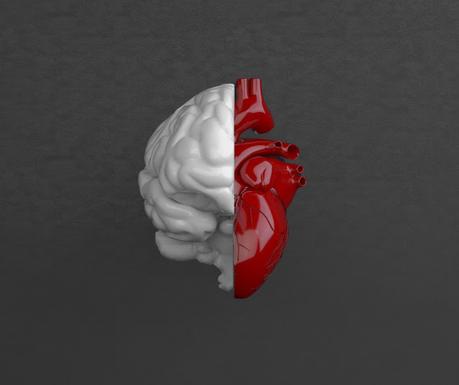
A casi nadie le gustan los días “oficiales” que cada jornada ponen el foco en instituciones, enfermedades o motivos varios, pero no quisiera terminar el que visibiliza la Atención Primaria haciendo una reflexión. Para ello me ayudo de Franco Batiato que ha fallecido esta semana dejándonos una estela de música e inspiración. Los más jóvenes seguramente no lo hayan disfrutado pero para los de mi generación sí que marcó tendencia. Una de sus canciones más célebres habla de un centro de gravedad permanente y me hace preguntarme cuál sería hoy el de nuestro sistema sanitario.
Si rebusco en su diseño original, tengo que reconocer que los sistemas sanitarios públicos se diseñaron con un cimiento basado en Atención Primaria del que pendían servicios hospitalarios especializados que progresivamente se fueron ampliando y complejizando. El centro de gravedad ha ido pasando pues desde primaria a hospitalaria a medida que el presupuesto y las prioridades políticas pusieron el foco en lo que más votos daba y no en lo que más beneficiaba a la sociedad. Y todo ello a su vez sometido a la poderosa fuerza gravitacional del mercado que tiende a centrar todo sus giros en el beneficio económico.
Pero independientemente de la lamentable situación presupuestaria, de gestión y de motivación que sufre el primer nivel asistencial tal vez venga bien preguntarse cuál es el centro de gravedad de sus profesionales. Y no es fácil responder cuando estamos zarandeados por una potente fuerza centrípeta que nos centrifuga cada vez más rápido obligándonos a atender cada vez más pacientes en menos tiempo. La verdad es que no estamos centrados. La irritación, agotamiento, desesperanza y otros sentimientos cromáticos oscuros tiñan la actividad asistencial de muchos impidiendo hacer pie en un centro de gravedad que produzca estabilidad y equilibrio.
Evidentemente estar descentrados y desequilibrados no es lo mejor ni para nosotros ni para nuestro pacientes. ¿Pero cómo asumir que nuestras Consejerías de Salud no den respuesta a la falta de profesionales? ¿Cómo encarar un futuro en el que se va a jubilar un cuarto de la plantilla en pocos años sin que nuestros políticos hagan absolútamente nada para afrontar semejante desastre?
Me siento a mirar el mar escuchando a Batiato y sonrío al recordar que sigo siendo responsable de mi propio centro de gravedad. Pase lo que pase fuera cada cual es soberano en su equilibrio interno. Eso me da un punto de apoyo para colocar la necesaria palanca de esperanza que pueda levantar el peso que me toca afrontar cada día. Espero que mis compañeras y compañeros puedan también encontrarlo.

The centre of gravity of the Health System Hardly anyone likes the "official" days that focus on institutions, diseases or various reasons, but I would not like to end the day that makes Primary Care visible by reflecting on it. To do so, I would like to invite Franco Batiato, who passed away this week, leaving us a trail of music and inspiration. Younger people may not have enjoyed him, but for those of my generation he was a trendsetter. One of his most famous songs speaks of a permanent centre of gravity and makes me wonder what the centre of gravity of our healthcare system would be today. If I go back to its original design, I have to recognise that public health systems were designed with a foundation based on primary care, with specialised hospital services that gradually expanded and became more complex. The centre of gravity has therefore shifted from primary to hospital care as the budget and political priorities focused on what brought in the most votes rather than on what most benefited society. And all this in turn has been subject to the powerful gravitational pull of the market, which tends to focus on economic profit. But regardless of the lamentable budgetary, management and motivational situation that the first level of care suffers, perhaps it is worth asking ourselves what is the centre of gravity of its professionals. And it is not easy to answer when we are buffeted by a powerful centripetal force that is moving us faster and faster, forcing us to see more and more patients in less and less time. The truth is that we are not centred. Irritation, exhaustion, hopelessness and other dark chromatic feelings stain the care activity of many, preventing us from standing on a centre of gravity that produces stability and balance. Clearly, being off-centre and unbalanced is not the best thing for us or for our patients, but how can we deal with the fact that our Health Departments do not respond to the lack of professionals? How can we face a future in which a quarter of the workforce is going to retire in a few years and our politicians do absolutely nothing to deal with such a disaster? I sit looking out to sea listening to Batiato and I smile as I remember that I am still responsible for my own centre of gravity. Whatever happens outside, everyone is sovereign in their own internal balance. That gives me a foothold to place the necessary lever of hope that can lift the weight I have to face every day. I hope that my colleagues can also find it.
健康系統的重心 自動翻譯,抱歉錯誤。 幾乎沒有人喜歡關注機構,疾病或各種原因的“官方”天,但我不想通過反思它來結束初級保健的那一天。為此,我想使用本週通過的Franco Batiato,讓我們成為一個音樂和靈感的踪跡。年輕人可能沒有享受他,但對於那些我的一代人來說,他是一個潮流的人。他最著名的歌曲之一講了一個永久性的重心,讓我想知道今天我們的醫療保健系統的重心是什麼。 如果我回到原始設計,我必須認識到,公共衛生系統是以基於初級保健的基礎,專業醫院服務逐漸擴大,變得更加複雜。因此,重心從初級到醫院照顧,因為預算和政治優先事項專注於帶來最多投票的是什麼,而不是最受受益的社會。所有這一切又一直受到市場的強大引力,這往往會專注於經濟利潤。 但無論悲慘的預算,管理和勵志的情況如何,第一次護理遭受的痛苦遭受,也許值得詢問自己的專業人才的重心。當我們被一個強大的向心力量進行自助時,不容易回答,這些力量更快,迫使我們在更短時間內看到越來越多的患者。事實是我們不集中。刺激,疲勞,絕望和其他黑色暗色情染色許多護理活動,防止我們站在產生穩定性和平衡的重心上。 顯然,偏離中心和不平衡不是我們或為我們的患者最好的東西,但我們如何應對我們的衛生部門沒有響應缺乏專業人士的事實?我們如何面對未來,其中四分之一的勞動力將在幾年內退休,我們的政治家絕對無需處理此類災難? 我坐著望著海上聽Batiato,我記得我仍然對自己的重心負責。無論在外面發生什麼,每個人都在他們自己的內部平衡中主權。這讓我很大,可以放置必要的槓桿,希望能夠舉起我每天都要面對的重量。我希望我的同事也可以找到它。
